#aws ec2 setup
Explore tagged Tumblr posts
Text
#How to Set up Odoo on AWS#Odoo on AWS#deploy Odoo on AWS#install Odoo aws#install Odoo on AWS#Install Odoo on AWS EC2#Setup Odoo on AWS
0 notes
Text
How to set up AWS EC2
1. Eneter the homepage -> Click "Instances"
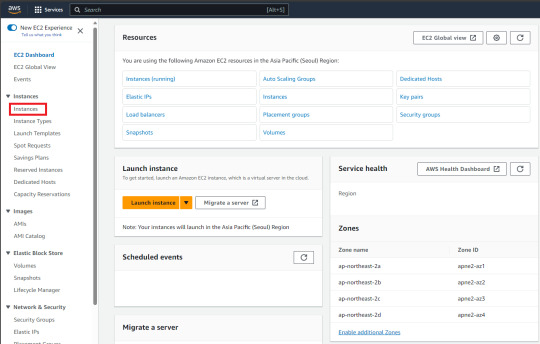
2. Click "Launch Instances"
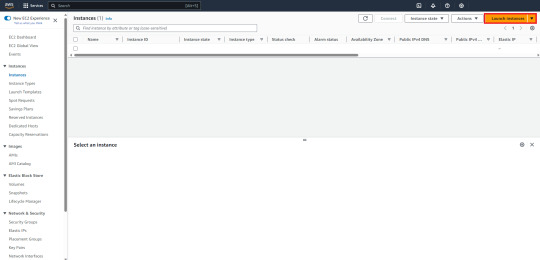
3. Setting instances -> Click "Launch Instance"
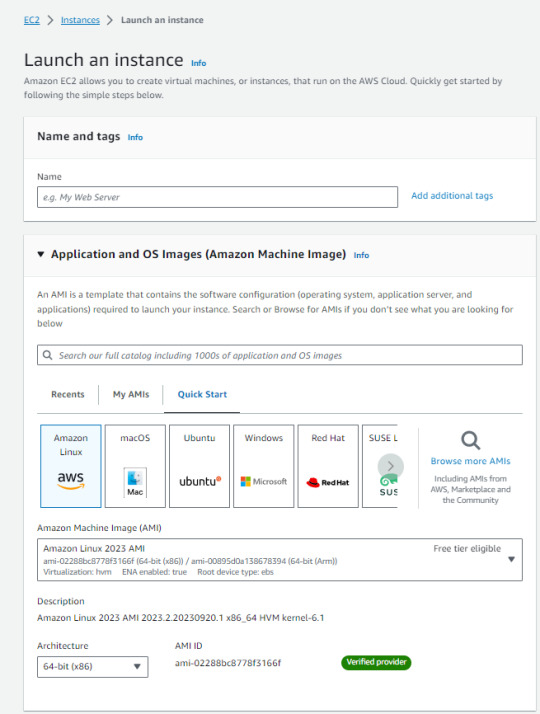
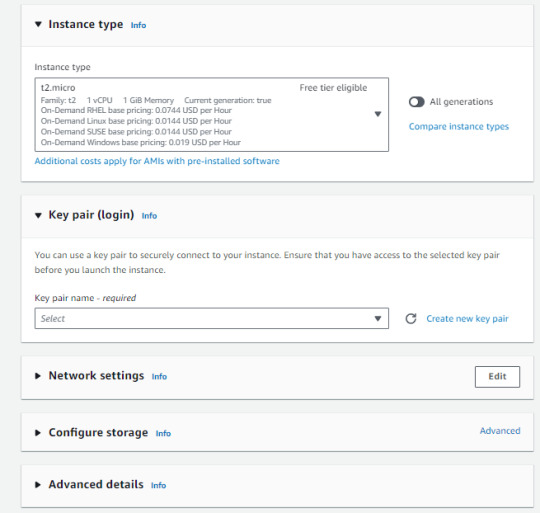
This is a very important point!
You should choose the "Instance type" based on your demand. It's helpful to look at the "vCPU" and "Memory" requirments. You also need to choose the "Key pair". If you don't have one, click to "Create new key pair" You'll be using it to access your instances, so you need to keep it handly.
0 notes
Text
Brazil VPS Hosting: Quick & Inexpensive Virtual Private Servers
When it comes to finding quick and inexpensive Virtual Private Servers (VPS) hosting in Brazil, there are several providers you can consider. Here are a few options:
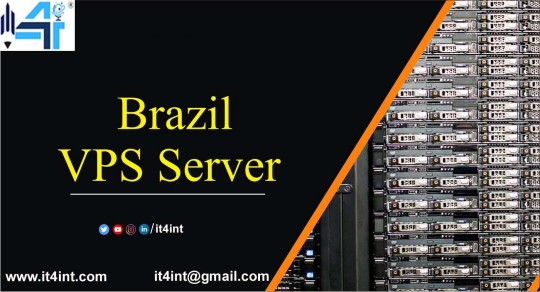
Hostinger: Hostinger offers VPS hosting with data centers in São Paulo, Brazil. They provide quick setup and competitive pricing for their VPS plans.
DigitalOcean: DigitalOcean has a data center in São Paulo, offering VPS hosting with SSD storage and a user-friendly interface for quick deployment.
Vultr: Vultr also has a presence in São Paulo and provides affordable VPS hosting with SSD storage, high-performance CPUs, and a range of data center locations globally.
Linode: Linode offers Brazil VPS hosting with a data center in São Paulo. They provide quick setup, SSD storage, and a variety of plans to choose from.
Amazon Web Services (AWS): AWS has a São Paulo region offering Elastic Compute Cloud (EC2) instances, which can be configured as VPS. While AWS may not always be the cheapest option, it provides scalability and reliability.
Before choosing a provider, consider factors such as server specifications, uptime guarantees, customer support quality, and scalability options. Additionally, make sure to check for any ongoing promotions or discounts that could help you save money on your VPS hosting.
#brazil windows vps#Brazil vps server pric#Best brazil vps server#buy vps server#Brazil vps price#VPS
2 notes
·
View notes
Text
Navigating the Cloud Landscape: Unleashing Amazon Web Services (AWS) Potential
In the ever-evolving tech landscape, businesses are in a constant quest for innovation, scalability, and operational optimization. Enter Amazon Web Services (AWS), a robust cloud computing juggernaut offering a versatile suite of services tailored to diverse business requirements. This blog explores the myriad applications of AWS across various sectors, providing a transformative journey through the cloud.
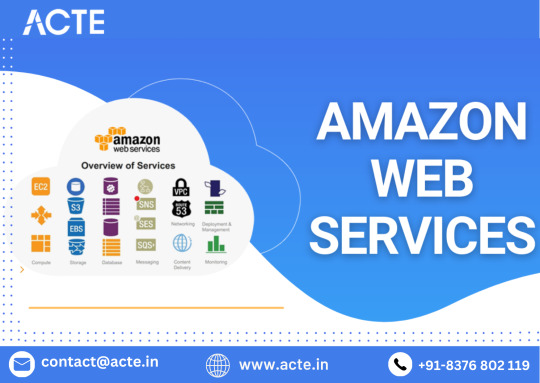
Harnessing Computational Agility with Amazon EC2
Central to the AWS ecosystem is Amazon EC2 (Elastic Compute Cloud), a pivotal player reshaping the cloud computing paradigm. Offering scalable virtual servers, EC2 empowers users to seamlessly run applications and manage computing resources. This adaptability enables businesses to dynamically adjust computational capacity, ensuring optimal performance and cost-effectiveness.
Redefining Storage Solutions
AWS addresses the critical need for scalable and secure storage through services such as Amazon S3 (Simple Storage Service) and Amazon EBS (Elastic Block Store). S3 acts as a dependable object storage solution for data backup, archiving, and content distribution. Meanwhile, EBS provides persistent block-level storage designed for EC2 instances, guaranteeing data integrity and accessibility.
Streamlined Database Management: Amazon RDS and DynamoDB
Database management undergoes a transformation with Amazon RDS, simplifying the setup, operation, and scaling of relational databases. Be it MySQL, PostgreSQL, or SQL Server, RDS provides a frictionless environment for managing diverse database workloads. For enthusiasts of NoSQL, Amazon DynamoDB steps in as a swift and flexible solution for document and key-value data storage.
Networking Mastery: Amazon VPC and Route 53
AWS empowers users to construct a virtual sanctuary for their resources through Amazon VPC (Virtual Private Cloud). This virtual network facilitates the launch of AWS resources within a user-defined space, enhancing security and control. Simultaneously, Amazon Route 53, a scalable DNS web service, ensures seamless routing of end-user requests to globally distributed endpoints.
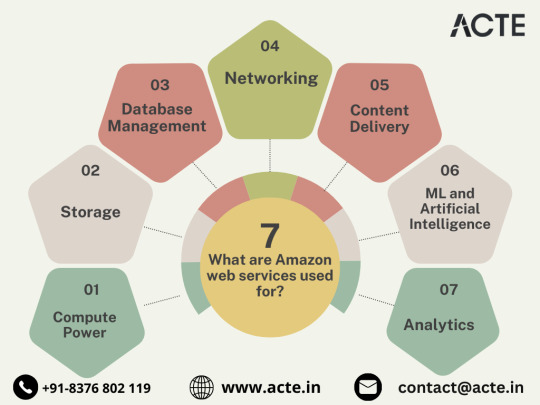
Global Content Delivery Excellence with Amazon CloudFront
Amazon CloudFront emerges as a dynamic content delivery network (CDN) service, securely delivering data, videos, applications, and APIs on a global scale. This ensures low latency and high transfer speeds, elevating user experiences across diverse geographical locations.
AI and ML Prowess Unleashed
AWS propels businesses into the future with advanced machine learning and artificial intelligence services. Amazon SageMaker, a fully managed service, enables developers to rapidly build, train, and deploy machine learning models. Additionally, Amazon Rekognition provides sophisticated image and video analysis, supporting applications in facial recognition, object detection, and content moderation.
Big Data Mastery: Amazon Redshift and Athena
For organizations grappling with massive datasets, AWS offers Amazon Redshift, a fully managed data warehouse service. It facilitates the execution of complex queries on large datasets, empowering informed decision-making. Simultaneously, Amazon Athena allows users to analyze data in Amazon S3 using standard SQL queries, unlocking invaluable insights.
In conclusion, Amazon Web Services (AWS) stands as an all-encompassing cloud computing platform, empowering businesses to innovate, scale, and optimize operations. From adaptable compute power and secure storage solutions to cutting-edge AI and ML capabilities, AWS serves as a robust foundation for organizations navigating the digital frontier. Embrace the limitless potential of cloud computing with AWS – where innovation knows no bounds.
3 notes
·
View notes
Text

I will install and configure SSL certificate for your website on AWS ec2, Dillpo
dillpo Link https://dillpo.com/s/447675E1EBF92BBEC8D0
will migrate your website to the Amazon Web Services cloud or any other cloud hosting provider. As part of this gig, I will setup everything required to host your website on your AWS EC2 Virtual Private Server or AWS Lightsail.#TelAviv #Tehran #FathersDay #lovefighters #MAGASELLE #website #webdesign #websitedesign #digitalmarketing #seo #marketing #webdevelopment #design #business #web #webdesigner #ecommerce #branding #wordpress #webdeveloper #socialmedia #graphicdesign #websitedevelopment #socialmediamarketing #ux #ui #html #instagram #uidesign #smallbusiness #websitedesigner #logo #css #uxdesign #marketingdigital
0 notes
Text
AWS Cloud Training in Pune: The Smartest Move for Tech Enthusiasts

The world is moving to the cloud, and so should your career. As organizations adopt digital-first strategies, the need for cloud computing experts—especially those skilled in Amazon Web Services (AWS)—is rising fast. If you’re in Pune and ready to step into the world of cloud technology, AWS Cloud Training in Pune with WebAsha Technologies is your best move toward a high-growth IT career.
What is AWS? And Why Should You Learn It?
Amazon Web Services (AWS) is the most widely used cloud computing platform globally, offering secure, scalable, and cost-efficient infrastructure. It powers businesses in every domain—from tech startups to government agencies—enabling them to deploy applications, store data, and manage services in real-time.
Why AWS Skills Are Career Gold:
AWS holds over 30% of the global cloud market share
More than 1 million active users globally
High-paying job roles across industries
Certifications that are recognized worldwide
Why Choose WebAsha Technologies for AWS Cloud Training in Pune?
At WebAsha Technologies, we go beyond textbooks. We deliver career-oriented training that helps you not only learn AWS but also implement it in real-world scenarios. Whether you're a student, a working professional, or someone seeking a career change, our program is tailored to meet your goals.
What Makes Our AWS Training Stand Out?
Certified Trainers with real-time cloud project experience
Hands-On Learning with labs and practical simulations
Live Projects to prepare for real-world deployments
Updated Curriculum
Interview Preparation & Job Support
Who Can Join AWS Cloud Training in Pune?
This course is designed for learners from various backgrounds. You don’t need prior cloud experience—just curiosity and dedication.
Ideal for:
IT Professionals looking to upskill
Freshers eager to start a career in cloud computing
System Admins and Network Engineers
Software Developers and DevOps Engineers
Business Owners or Startup Founders with technical goals
Course Highlights – What You’ll Learn
Our AWS Cloud Training in Pune focuses on building your knowledge from the ground up and preparing you for AWS certifications like Solutions Architect Associate.
Core Modules Include:
Introduction to Cloud & AWS Overview
EC2: Compute Services
S3: Cloud Storage Solutions
VPC: Virtual Private Network Setup
IAM: User and Permission Management
RDS & DynamoDB: Databases on AWS
Elastic Load Balancers & Auto Scaling
Cloud Monitoring with CloudWatch
AWS Lambda & Serverless Computing
Real-World Project Deployment
Career Path After AWS Training
Once you complete the course, you can aim for industry-recognized certifications such as:
AWS Certified Cloud Practitioner
AWS Certified Solutions Architect – Associate
AWS Certified Developer – Associate
AWS Certified SysOps Administrator
Why Pune is the Perfect Place to Learn AWS
As one of India’s top IT cities, Pune hosts numerous tech parks and multinational companies. Cloud computing roles are booming here, and employers actively seek AWS-certified professionals. By completing AWS Cloud Training in Pune, you position yourself for local and global job opportunities.
Final Words: Let the Cloud Power Your Future
With cloud computing becoming essential in every sector, there has never been a better time to learn AWS. Enroll in AWS Cloud Training in Pune at WebAsha Technologies and take your first step toward a high-paying, future-ready career. Learn from experts, get hands-on experience, and earn certifications that can open doors globally.
0 notes
Text
Exploring AWS Cloud Services: A Key Player in Seattle’s Tech Landscape
Amazon Web Services (AWS) is a global leader in cloud computing, providing scalable and reliable cloud infrastructure to businesses of all sizes.
Headquartered in Seattle, AWS offers a suite of cloud services that enable organizations to innovate faster, reduce IT costs, and scale efficiently.
This blog will explore the importance of AWS Cloud Services, particularly in Seattle, a city that has become a hub for tech innovation and enterprise growth, with an emphasis on AWS Cloud Consulting Services in Seattle.
What are AWS Cloud Services?
AWS provides a vast array of cloud solutions, ranging from computing power and storage to machine learning and artificial intelligence.
These services are designed to support a variety of business needs, from startups to large enterprises. Some of the core AWS services include Amazon EC2 (for scalable computing), Amazon S3 (for object storage), and AWS Lambda (for serverless computing).
AWS’s global infrastructure, including its extensive network of data centers, ensures that services are delivered with high availability and low latency.
AWS Cloud Services in Seattle
Seattle, the home of Amazon, plays a pivotal role in the global cloud computing industry, and AWS Cloud Services in Seattle are central to the city's booming tech ecosystem.
From small startups to large enterprises, businesses in Seattle are increasingly relying on AWS’s flexible, secure, and cost-effective solutions. With services like AWS Elastic Beanstalk, Amazon RDS, and Amazon SageMaker for machine learning, local companies are able to scale quickly and innovate faster than ever before.
AWS Cloud Consulting Services in Seattle
For businesses in Seattle, AWS Cloud Consulting Services are invaluable. These services help organizations plan, migrate, and optimize their cloud infrastructure, ensuring they get the most out of their AWS investment.
Local AWS consultants are experts in navigating the complexities of cloud adoption, from architecture design to cost optimization.
Whether a business is transitioning to the cloud or looking to optimize an existing AWS setup, AWS consulting services can guide them through best practices and help minimize risks.
Seattle’s thriving tech community is home to numerous AWS-certified consultants and consulting firms that offer personalized solutions tailored to specific business needs.
Companies like KPMG, Slalom Consulting, and many specialized AWS partners are well-positioned to assist businesses in Seattle with cloud strategies, security assessments, and performance optimization on AWS.
The Future of AWS in Seattle
As AWS continues to expand its services and infrastructure globally, Seattle remains at the heart of this transformation.
With local data centers and a robust tech talent pool, the city is well-positioned to be a leader in cloud innovation. Startups and enterprises alike are increasingly turning to AWS to enhance their digital transformation journeys.
The presence of AWS Cloud Consulting Services in Seattle ensures that businesses have access to the expertise needed to fully leverage the power of the cloud, making Seattle a key hub for AWS adoption and growth.
Conclusion
AWS Cloud Services, including AWS Cloud Consulting Services in Seattle, are more than just technological advantages—they represent a fundamental shift in how businesses operate and scale.
Whether you're a startup seeking guidance on cloud adoption or an established enterprise looking to optimize your AWS setup, leveraging AWS’s vast offerings and local consulting expertise can help unlock new opportunities and drive innovation in today’s competitive market.
1 note
·
View note
Text
The Need for Simplified Cloud Deployments.
As companies move more of their work to the cloud, making secure, scalable, and affordable solutions is becoming harder. Picking the right cloud migration, managing computing power, and ensuring security pose big challenges. Many organizations struggle to switch smoothly without wasting time or making mistakes. CloudKodeForm Technologies offers a solution by providing simple, smart methods that reduce risks and boost performance.

Cloud technology is key for quick business growth, flexibility, and new ideas. But setting up in the cloud requires many steps. These include designing the system, choosing services like AWS EC2 or Lambda Cloud, setting up infrastructure, keeping security in check, and controlling costs. Even skilled IT teams can find these tasks slow and prone to errors without proper tools or guidance.
Companies need a reliable partner who understands cloud options and can help create solutions that match their goals. CloudKodeForm Technologies fits this role perfectly.
How CloudKodeForm Technologies Makes Deployment Easier CloudKodeForm Technologies provides a full cloud setup service focused on simplicity, speed, and safety. Here’s how it works:
Intelligent Recommendations Whether the project needs GPU instances on Lambda Cloud or scalable compute on AWS EC2, CloudKodeform reviews your needs and suggests the best setup. This helps avoid wasting resources and money.
Ready-to-Use Templates To quicken deployment, CloudKodeForm Technologies offers customizable templates for common cloud setups. These are built to perform well, stay secure, and save money. Using them reduces planning and testing time by weeks.
Security Built-In Security isn’t an afterthought. CloudKodeForm Technologies includes best practices for safety. It automatically manages user permissions, encrypts data, and monitors your cloud environment in real-time.
One-Click Setup Launching cloud environments is easy with CloudKodeForm Technologies. Whether starting EC2 instances or deploying AI models on Lambda Cloud, the process is quick, reliable, and repeatable.
Supporting Hybrid and Multi-Cloud Use Many businesses run workloads across different clouds or combine multiple providers. CloudKodeForm Technologies helps integrate these setups smoothly. It allows migration between AWS, Lambda Cloud, and others without much trouble. This makes it easier to grow and adapt your cloud plan over time.
Why Choose CloudKodeForm Technologies Expert advice from experienced cloud architects
Efficient deployment setups
Support around the clock for critical systems
Works with major cloud platforms
Focus on keeping costs low and performance high
Final Thoughts CloudKodeForm Technologies isn’t just a consulting firm. It’s a partner that makes big cloud projects easier. Whether starting fresh or tweaking existing setups, CloudKodeForm Technologies helps teams deploy smarter, faster, and safer.
0 notes
Text
EMR Notebooks Security Within AWS Dashboard & EMR Studio

Security for EMR Notebooks
Recent Amazon EMR documentation highlights numerous built-in options to increase EMR Notebook security that are now available in the AWS dashboard as EMR Studio Workspaces. These capabilities are aimed to give users precise control so that only authorised users may access and interact with these notebooks and, most crucially, use the notebook editor to run code on linked clusters.
The security measures for Amazon EMR and its clusters complement those for EMR Notebooks. Tiered security allows for additional thoroughness. Many important processes for restricting access and securing notebook environments are mentioned in the documentation:
AWS IAM Integration: Integrated Identity and Access Management is crucial. Use IAM policy statements. In these policies, AWS defines permissions, including who can access what resources and do what. The documentation suggests using policy statements with notebook tags to restrict access.
This solution lets you tag EMR notebooks with key-value labels and build IAM policies that allow or deny access based on these tags. These extracts do not include the tagging methods, however this allows more granular control than providing access to all notebooks. Certain projects, teams, or data sensitivity levels may allow access control.
Amazon EC2 security groups are highlighted. They function as virtual firewalls. They control network traffic between the notebook editor and the cluster's primary instance in EMR Notebooks.
This basic network security solution restricts network connectivity between the real computing resources (the principal instance of the EMR cluster), where code execution begins, and the notebook environment, where the user interacts. According to the documentation, customers can adjust EMR Notebook security groups to meet their network isolation needs or use the default settings. EMR Notebook EC2 security group configuration instructions are available.
An AWS Service Role is utilised for setup. Highlights your responsibility to define this job. This Service Role is necessary to grant EMR notebooks authorisation to communicate with other AWS services. This Service Role allows notebook code to interface with databases, access S3 data, and call other AWS APIs.
The least privilege principle requires that a position only have the access needed to complete their tasks.
AWS console access requires additional permissions to access EMR Notebooks. Console users can access EMR Notebooks as EMR Studio Workspaces. You require extra IAM role rights to access or create these Workspaces. Use of the “Create Workspace” button requires this. This adds access control to the console interface, unlike the notebook's execution permissions or Service Role for communicating with other services. It indicates that basic EMR console rights and console access to EMR Studio Workspaces are covered elsewhere.
Together, EC2 security groups act as virtual firewalls to regulate network traffic, IAM policies with notebook tags limit access, a specific AWS Service Role defines interaction permissions with other services, and additional IAM permissions for console access to EMR Studio Workspaces allow administrators to customise the security posture of their EMR Notebook environments.
These rules restrict network connections and cross-service rights for notebook operations and ensure that only authorised users can work with notebooks and run programs. According to the documentation, these functionalities complement the Amazon EMR security architecture by providing a multidimensional approach to notebook-based data processing workflow security.
#EMRNotebooksSecurity#EMRNotebooks#AmazonEMR#IdentityandAccessManagement#EMRStudioWorkspaces#EMRStudio#technology#technews#technologynews#news#govindhtech
0 notes
Text

#How to Set up Odoo on AWS#Odoo on AWS#deploy Odoo on AWS#install Odoo aws#install Odoo on AWS#Install Odoo on AWS EC2#Setup Odoo on AWS
1 note
·
View note
Text
Blockchain Mining on AWS + blockchaincloudmining.com
Blockchain mining on AWS is a popular method for those looking to harness the power of cloud computing for cryptocurrency mining. By leveraging Amazon Web Services (AWS), miners can set up powerful virtual machines tailored for mining operations, significantly reducing the upfront cost and complexity associated with traditional hardware setups. This approach offers flexibility and scalability, allowing miners to adjust their computational resources based on demand and profitability.
For beginners and experienced miners alike, using AWS for blockchain mining provides a streamlined process that minimizes technical hurdles. With services like EC2 instances optimized for GPU and FPGA mining, users can easily configure their environments without needing extensive IT knowledge. Additionally, AWS's robust infrastructure ensures high uptime and security, critical factors in maintaining a successful mining operation.
To get started or learn more about how AWS can enhance your mining efforts, visit https://blockchaincloudmining.com. This platform offers comprehensive guides, tutorials, and support for setting up and managing your AWS-based mining rigs. Whether you're new to the world of blockchain mining or an experienced miner looking to expand your operations, blockchaincloudmining.com is an invaluable resource.
blockchaincloudmining.com

Block Chain Cloud Mining
BlockChain Cloud Mining
0 notes
Text
☁️ Cloud Computing Courses for Beginners (2025): Where to Start and What to Expect
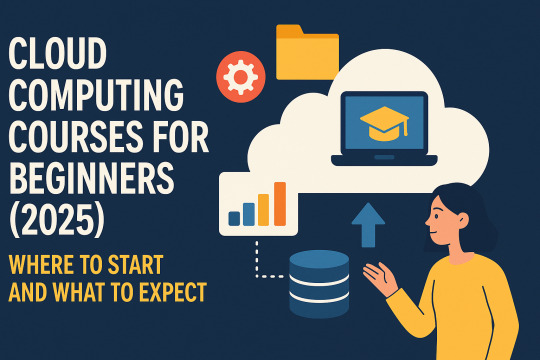
👨🎓 New to Tech? Wondering if You Can Learn Cloud Computing?
You’ve seen the job listings. You’ve heard about AWS, Azure, and Google Cloud. You might’ve even asked yourself, “Is this something I can learn, or is it only for experienced developers?”
Here’s the honest answer: Yes, you absolutely can learn cloud computing—even as a beginner. And no—you don’t need to be a coder to get started.
🧠 What Exactly Is Cloud Computing?
Let’s break it down in real-world terms.
Cloud computing is about accessing technology services (like servers, storage, and databases) over the internet instead of owning them physically. Just like you stream music without downloading every song, companies use cloud platforms to run apps without buying physical machines.
This makes cloud computing:
🔄 Scalable
⚡ Fast
💰 Cost-effective
🌐 Accessible from anywhere
Think of it as “IT on rent.”
🌐 What Are the Major Cloud Platforms?
There are three major players in the cloud computing space:
🔹 Amazon Web Services (AWS)
Largest market share globally
Great documentation and job demand
Ideal for beginners starting a cloud career
🔹 Microsoft Azure
Preferred by companies already using Microsoft services
Common in large enterprises and MNCs
Works well for IT support engineers or Windows admins
🔹 Google Cloud Platform (GCP)
Known for machine learning, analytics, and modern web apps
Growing ecosystem with startups and AI companies
Ideal for learners with interest in data + development
🎓 What to Expect from a Beginner-Friendly Cloud Course?
The right course should cover:
Cloud concepts: IaaS, PaaS, SaaS
Platform navigation (AWS Console, Azure Portal, GCP Dashboard)
Virtual Machines, storage, identity & access
Networking and basic security setup
Hands-on labs and small projects
Guidance for entry-level certifications
And most importantly, it should be beginner-friendly—not overloaded with theory or code.
🧑🏫 Why Learn Cloud with NareshIT?
At NareshIT, we’ve trained over 100,000 students in real-world IT skills. Our cloud computing courses are designed to help absolute beginners start from scratch, learn hands-on, and become confident enough to apply for jobs or certifications within weeks.
📘 NareshIT’s Cloud Computing Courses for Beginners
✅ AWS Cloud Foundations (Beginner Level)
Duration: 60 Days
Topics: EC2, IAM, S3, Lambda, VPC
Bonus: Live labs, project guidance, AWS Cloud Practitioner & Associate certification prep
Outcome: Ready for junior cloud jobs & support roles
✅ Azure Essentials Course (Beginner + Admin)
Duration: 45 Days
Topics: Azure AD, VMs, Blob Storage, Azure Monitor
Bonus: AZ-900 + AZ-104 prep, DevOps preview
Outcome: Ideal for support engineers and system admins
✅ GCP Starter Course (Beginner + Cloud Native Tools)
Duration: 30 Days
Topics: Compute Engine, IAM, BigQuery, Cloud Functions
Bonus: GCP Associate Cloud Engineer certification coaching
Outcome: Great for data lovers and devs entering cloud
🎓 DevOps with Multi-Cloud Training in KPHB by NareshIT
Located in Hyderabad’s tech-learning hub, NareshIT’s DevOps with Multi-Cloud Training in KPHB is tailored for:
✅ Beginners who want an IT job fast
✅ Professionals switching from support/manual testing
✅ Freshers looking for job-ready cloud + DevOps skills
🧾 Course Highlights:
Cloud Platforms Covered: AWS, Azure, GCP
DevOps Tools: Git, Jenkins, Docker, Kubernetes, Terraform
Duration: ~60 days
Batch Options: Weekday, Weekend, Fast-track
Includes: Real-world projects, certification support, job readiness prep
Location: KPHB, Hyderabad (Online + Offline options)
📅 New Batches Are Starting Now Choose from weekday, weekend, or fast-track options based on your schedule.
👉 Check NareshIT's Latest Cloud Batches Here
🧩 Bonus: Why Learning Cloud Computing Is Worth It
💼 High-demand job roles: Cloud support, DevOps, Admin
💸 Strong entry-level salaries: ₹4.5 to ₹7 LPA (for certified freshers)
🌱 Fast career growth: Start simple, grow into architecture or security
🌍 Global opportunities: Remote jobs across India, US, UAE, and more
You don’t need to master everything at once. Just start with one platform. And with the right mentor, you'll move faster than you thought possible.
#DevOpsWithMultiCloud#CloudCoursesHyderabad#LearnAWSAzureGCP#CareerInCloud#DevOpsForBeginners#CloudSkillsIndia#MultiCloudTrainingIndia#TechJobsHyderabad#CloudCertifications2025
0 notes
Text
Top Training Institutions in Ameerpet for DevOps and AWS DevOps Courses
Introduction
Ameerpet, located in Hyderabad, India, has earned a reputation as a hub for quality IT training. Whether you're a fresh graduate or a working professional looking to upskill, Ameerpet offers a wide array of training institutions that cater to the growing demand for DevOps and AWS DevOps skills.
Why Ameerpet is a Preferred Location for IT Training
Ameerpet has long been recognized as a hotspot for IT courses due to its affordable fees, experienced faculty, and real-time project-based training. With the rise of cloud computing and automation, DevOps training institutes in Ameerpet have tailored their programs to align with current industry demands.
DevOps Course Online in Ameerpet
For those who can't attend classes in person, many institutes offer DevOps courses online in Ameerpet. These online courses provide flexibility without compromising on the quality of instruction. Live sessions, recorded videos, doubt-clearing sessions, and hands-on labs are commonly included.
DevOps Training Online in Ameerpet: What to Expect
Online training programs in Ameerpet usually cover:
Introduction to DevOps culture and practices
CI/CD pipelines using Jenkins
Containerization with Docker and Kubernetes
Version control with Git and GitHub
Infrastructure as Code using Ansible and Terraform
Students enrolled in DevOps training online in Ameerpet gain both theoretical knowledge and practical exposure, often guided by industry experts.
DevOps Classroom Training in Ameerpet
For learners who prefer traditional setups, DevOps classroom training in Ameerpet offers an immersive environment with face-to-face interaction. These sessions are highly interactive and ideal for people who thrive on immediate feedback and collaboration.
AWS DevOps Course in Ameerpet
With the growing importance of cloud-native DevOps, several institutions now offer a specialized AWS DevOps course in Ameerpet. These courses focus on:
AWS services such as EC2, S3, Lambda, and CloudFormation
CI/CD automation using AWS CodePipeline and CodeBuild
Monitoring and logging with CloudWatch and X-Ray
These courses are designed to help students prepare for AWS Certified DevOps Engineer exams and build strong practical skills.
How to Choose the Best DevOps Training Institute in Ameerpet
When selecting a DevOps training institute in Ameerpet, consider the following:
Curriculum alignment with industry trends
Trainer qualifications and industry experience
Access to hands-on labs and real-world projects
Flexibility for online or offline learning
Placement assistance and certification support
Conclusion
Whether you're looking for a DevOps course online in Ameerpet or prefer the traditional classroom route, there are plenty of reputable training institutions in Ameerpet that can help you build a successful DevOps career. From basic principles to advanced AWS DevOps practices, Ameerpet remains a top destination for IT training.
#devops training institute in ameerpet#devops classroom training in ameerpet#aws devops course in ameerpet
0 notes
Text
Master Cloud Automation with AWS DevOps at Fusion Institute
This comprehensive program covers key DevOps practices while focusing on the powerful AWS ecosystem. Learners will gain hands-on experience with tools like AWS CodePipeline, Code Build, CloudFormation, EC2, Elastic Beanstalk, and more. The course offers in-depth training in continuous integration and delivery (CI/CD), infrastructure as code (IaC), containerization, monitoring, and automation, making it ideal for those seeking a competitive edge in cloud careers. Fusion Institute ensures practical learning through real-world projects and expert guidance, preparing students for globally recognized AWS certifications. Whether you're a developer, system admin, or aspiring DevOps engineer, this course provides a structured path to becoming an industry-ready cloud professional. AWS DevOps Course Highlights Comprehensive AWS DevOps Curriculum Covers key DevOps practices using Amazon Web Services, including CI/CD, automation, and monitoring. Hands-On Learning Real-time projects and practical labs for mastering tools like AWS CodePipeline, CodeDeploy, EC2, CloudFormation, and more. CI/CD Implementation Learn to build robust continuous integration and continuous delivery pipelines using industry-leading practices. Infrastructure as Code (IaC) Gain expertise in automating infrastructure setup and management with tools like AWS CloudFormation and Terraform. Containerization & Orchestration Introduction to Docker and Kubernetes for modern application deployment. Monitoring & Logging Master AWS CloudWatch and other tools to monitor, log, and troubleshoot applications. Expert Trainers Learn from industry-certified professionals with real-world DevOps and cloud experience. Certification Support Get prepared for AWS Certified DevOps Engineer – Professional and other relevant AWS certifications. Flexible Learning Options Online and offline modes available to fit your schedule. Career Guidance Resume building, interview preparation, and placement support to help you land your dream DevOps job. Elevate your IT career with the AWS DevOps course at Fusion Institute—where cloud skills meet real-world success. Location and Contact Address: Office 101, 104 1st Floor, Stellar Spaces, Kharadi South Main Road, Opp. Zensar IT Park, Kharadi, Pune, Maharashtra 411014. Email: [email protected]. Phone: +91 7498992609 / +91 9890647273
0 notes
Text
AWS Training in Porur – Practical Learning with Placement Guarantee
Are you looking for AWS Training in Porur that helps you gain practical skills and land a job in cloud computing? Trendnologies, a premier software training institute, offers industry-oriented AWS courses tailored for IT professionals and fresh graduates. With our commitment to hands-on learning and 100% job placement support, we help learners confidently step into the cloud domain.

With centers in Chennai (including Porur), Coimbatore, and Bangalore, Trendnologies is a trusted name in Information Technology education and professional training. Whether you're starting your career or upskilling, we provide a supportive ecosystem for success.
Why AWS Training is Important in Today’s Job Market
Amazon Web Services (AWS) is the world’s leading cloud platform used by startups, enterprises, and government sectors. As businesses increasingly migrate to cloud-based infrastructure, the demand for certified AWS professionals has skyrocketed.
Career opportunities with AWS include:
Cloud Solution Architect
AWS SysOps Administrator
DevOps Engineer
AWS Cloud Developer
Cloud Infrastructure Engineer
Getting trained and certified in AWS opens doors to high-paying jobs and long-term career growth.
Why Choose Trendnologies for AWS Training in Porur?
At Trendnologies Porur, we provide more than just theoretical knowledge. Our AWS course is built around real-world projects, use-cases, and certification-focused training. We ensure our students are ready to perform in interviews and real job roles.
Course Highlights:
Certified & Experienced Trainers
Real-Time Projects & Lab Access
Interactive Classes with Q&A Support
Career Mentorship and Resume Building
Mock Interviews and Placement Preparation
100% Job Placement Guarantee
Our teaching methods are highly practical, enabling students to deploy, manage, and troubleshoot AWS services with confidence.
What You’ll Learn in AWS Course in Porur
Our comprehensive AWS training curriculum includes:
Introduction to Cloud Computing and AWS Fundamentals
EC2 (Elastic Compute Cloud) Configuration
S3 (Simple Storage Service) and Lifecycle Policies
RDS (Relational Database Services)
IAM (Identity & Access Management) for Security
VPC (Virtual Private Cloud) Setup
Auto Scaling and Load Balancers
AWS Lambda and Serverless Architecture
Monitoring with AWS CloudWatch
Deployment using CloudFormation
We also guide students to prepare for AWS certifications such as:
AWS Certified Solutions Architect – Associate
AWS Certified Developer – Associate
Who Should Take Up This AWS Training?
Our AWS course is designed for:
Fresh Graduates looking to enter the IT industry
Working Professionals aiming for a career switch
System Admins and Network Engineers
Software Developers exploring cloud roles
DevOps aspirants
We welcome learners from all technical backgrounds. No prior AWS experience is required—just basic computer knowledge and a willingness to learn.
Convenient AWS Training in Porur, Chennai
Trendnologies’ Porur branch is well-connected and easy to reach from surrounding areas like Iyyappanthangal, Ramapuram, Valasaravakkam, and Mangadu. Our training center offers a focused learning environment with modern infrastructure, labs, and project spaces.
For students with time or travel constraints, we also offer online AWS training with live instructor support.
100% Placement Assistance
With Trendnologies, students don’t just learn—they launch their careers. Our dedicated placement cell works closely with hiring partners and MNCs to ensure our students are job-ready.
Placement services include:
Resume Writing & Optimization
Personality Development Sessions
Technical Mock Interviews
HR Interview Preparation
Job Referrals & Direct Company Interviews
Our placement success stories span top companies in Chennai and across India.
Conclusion
If you're serious about building a rewarding IT career in the cloud industry, AWS Training in Porur with Trendnologies is your perfect launchpad. We equip you with the skills, certifications, and placement support to succeed in today's tech-driven job market.
Website: www.trendnologies.com Email: [email protected] Location: Chennai | Coimbatore | Bangalore
0 notes
Text
What Are The Programmatic Commands For EMR Notebooks?

EMR Notebook Programming Commands
Programmatic Amazon EMR Notebook interaction.
How to leverage execution APIs from a script or command line to control EMR notebook executions outside the AWS UI. This lets you list, characterise, halt, and start EMR notebook executions.
The following examples demonstrate these abilities:
AWS CLI: Amazon EMR clusters on Amazon EC2 and EMR Notebooks clusters (EMR on EKS) with notebooks in EMR Studio Workspaces are shown. An Amazon S3 location-based notebook execution sample is also provided. The displayed instructions can list executions by start time or start time and status, halt an ongoing execution, and describe a notebook execution.
Boto3 SDK (Python): Demo.py uses boto3 to interface with EMR notebook execution APIs. The script explains how to initiate a notebook execution, get the execution ID, describe it, list all running instances, and stop it after a short pause. Status updates and execution IDs are shown in this script's output.
Ruby SDK: Sample Ruby code shows notebook execution API calls and Amazon EMR connection setup. Example: describe execution, print information, halt notebook execution, start notebook execution, and get execution ID. Predicted Ruby notebook run outcomes are also shown.
Programmatic command parameters
Important parameters in these programming instructions are:
EditorId: EMR Studio workspace.
relative-path or RelativePath: The notebook file's path to the workspace's home directory. Pathways include my_folder/python3.ipynb and demo_pyspark.ipynb.
execution-engine or ExecutionEngine: EMR cluster ID (j-1234ABCD123) or EMR on EKS endpoint ARN and type to choose engine.
The IAM service role, such as EMR_Notebooks_DefaultRole, is defined.
notebook-params or notebook_params: Allows a notebook to receive multiple parameter values, eliminating the need for multiple copies. Typically, parameters are JSON strings.
The input notebook file's S3 bucket and key are supplied.
The S3 bucket and key where the output notebook will be stored.
notebook-execution-name: Names the performance.
This identifies an execution when describing, halting, or listing.
–from and –status: Status and start time filters for executions.
The console can also access EMR Notebooks as EMR Studio Workspaces, according to documentation. Workspace access and creation require additional IAM role rights. Programmatic execution requires IAM policies like StartNotebookExecution, DescribeNotebookExecution, ListNotebookExecutions, and iam:PassRole. EMR Notebooks clusters (EMR on EKS) require emr-container permissions.
The AWS Region per account maximum is 100 concurrent executions, and executions that last more than 30 days are terminated. Interactive Amazon EMR Serverless apps cannot execute programs.
You can plan or batch EMR notebook runs using AWS Lambda and Amazon CloudWatch Events, or Apache Airflow or Amazon Managed Workflows for Apache Airflow (MWAA).
#EMRNotebooks#EMRNotebookscluster#AWSUI#EMRStudio#AmazonEMR#AmazonEC2#technology#technologynews#technews#news#govindhtech
0 notes